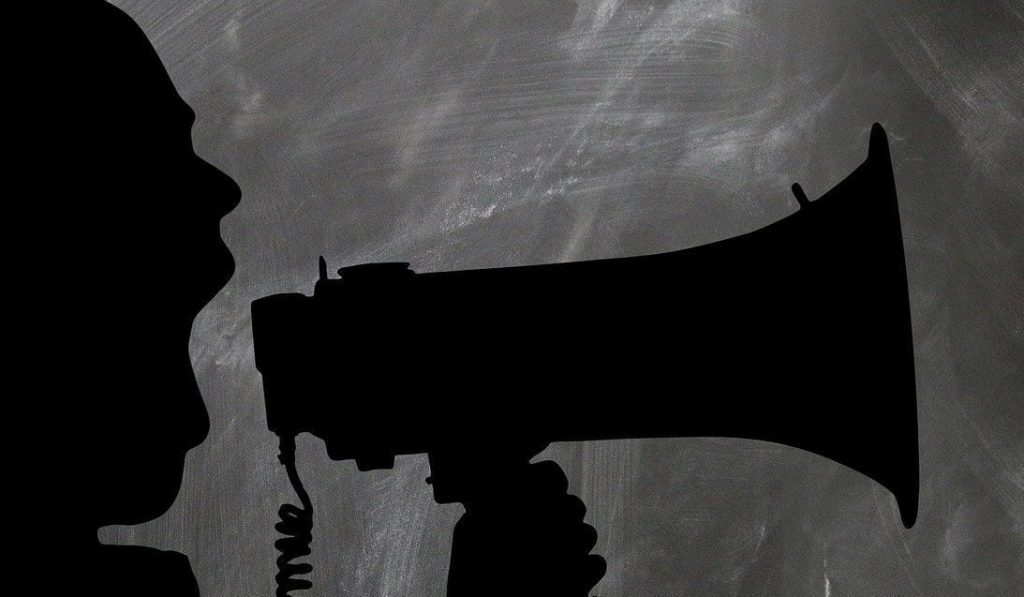Propaganda is a word that carries quite a bit of negative connotation with it. Is it advertising, or is it an attempt to try and convince people against their will? If you’re a historian or have spent at least some time learning about the history of media, you’re likely to have come across one or two forms of propaganda in your time. Here are some interesting facts about propaganda you’ll want to remember.
1. What is propaganda?
Propaganda refers to information that is widely communicated in order to influence or persuade a specific group of people. Generally speaking, propaganda is used when referring to politics. Propaganda can be based on truths and facts, as well as half-truths, lies, and falsities, all in order to influence public opinion and belief.
2. There’s positive and negative types.
Propaganda generally carries connotations, but it didn’t always! In fact, during the World Wars, propaganda was used to distract everyday people from the horrors of conflict. In that sense, it could be seen as a fairly positive, if still dishonest, tool.
3. The Nazis went all-out on propaganda.
One of history’s most famous runs of propaganda stems from Adolf Hitler’s infamous Nazi party. They used propaganda to spread fear, hatred, and their general message of oppression against anyone who wasn’t part of the “Aryan ideal.” For example, the Nazi party adopted the swastika symbol, which remains well known to this day by many for its representation of their heinous crimes.
4. What’s in a smear?
A very common form of propaganda that usually bears its ugly side during election times is the smear campaign! Certain governmental parties across the world take election periods as the perfect time to create “smears” against their rivals.
These campaigns are used to turn the general public against the opposing party by making claims regarding their values, opinions, and past behaviors. Generally speaking, they aren’t very nice (and they’re not always true, either)!
5. Propaganda can fight social barriers.
Propaganda has also been used throughout history to sway the public on much broader subjects than just politics! In fact, PR legend Edward Bernays hired women to smoke during a parade in the US, specifically to fight the idea that it was improper for women to smoke in public!
6. We want you!
Propaganda was also famously used during the World Wars to encourage people to “do their bit” for the greater cause, on behalf of Allied forces such as the UK. Posters and advertisements were plastered everywhere encouraging young men to enlist in the armed forces and for people to buy bonds to help keep their countries running.
7. Propaganda influenced many women during wartime.
Propaganda was also used during the World Wars to encourage women to get into the workforce! Since so many men were shipped off to the war, the women back home had to step up into male-dominated industries to keep things running!
Although it was for a tragic reason that women had to work in such industries, it generally helped to bring the countries involved deeper into gender equality. Every cloud has a silver lining, as they say.
8. Propaganda can be emotionally manipulative.
To influence and even manipulate as many people as possible, propaganda has to stir up feelings! Therefore, it can be used to make people feel angry, upset, excited, or even guilty. For example, during wartime, many campaigns were made to make people feel as though they weren’t doing enough, thereby encouraging them to give back to their countries!
9. Propaganda is not a dying art…
Propaganda is still very present and a very useful tool today! Although we don’t see it as much in physical posters like those of old, it can be commonly seen across various types of social media! For example, many people believe that the “fake news” movement was a somewhat clever form of propaganda, as it did stir and continues to to create a lot of hatred and anger and even push political changes.
10. Health propaganda exists, too.
Propaganda isn’t always used during wars and political battles. In fact, more recently, during the COVID-19 global pandemic, propaganda was a useful tool in encouraging people to stay home, stay distanced from one another, wash their hands, wear masks, and each do their part to limit the effects and reach of the disease.
FAQs about Propaganda
What is an example of positive propaganda?
A good example of positive propaganda is the Rosie the Riveter poster from World War II. The poster promoted the idea of strength, unity, and encouragement for United States citizens, and also pushed for gender equality.
What is the most famous piece of propaganda?
To this day, the most famous propaganda image remains that of Uncle Sam on the “I Want You for US Army” poster. It can even be seen in modern films such as Captain America, the First Avenger!
How is propaganda transmitted today?
Propaganda is transmitted to the masses today via multiple sources! It is usually seen via TV news, newspapers, websites, social media, posters, radio, print advertisements, and more. Don’t believe everything you read… unless you read it at Fact City, of course!
Further reading:
https://facts.uk/tag/politics
https://www.historians.org/about-aha-and-membership/aha-history-and-archives/gi-roundtable-series/pamphlets/em-2-what-is-propaganda-(1944)/the-story-of-propaganda
https://www.britannica.com/topic/propaganda
Do you know any interesting facts about propaganda? Share them in the comments below!
